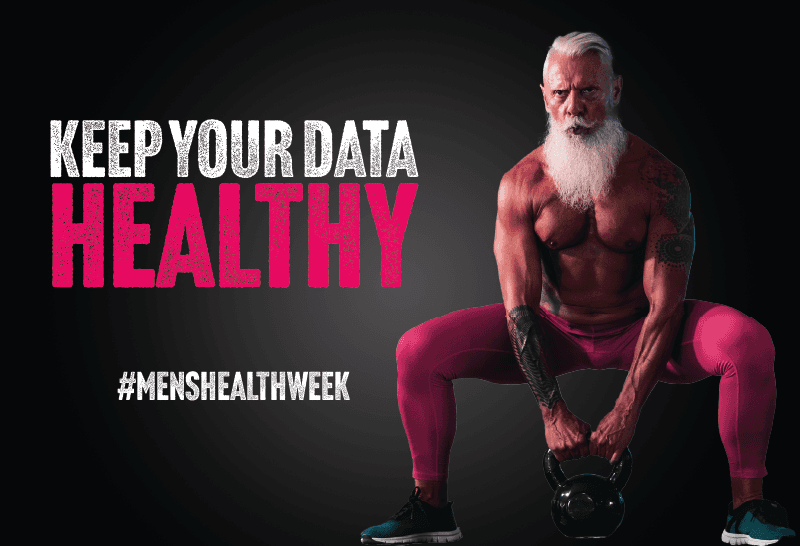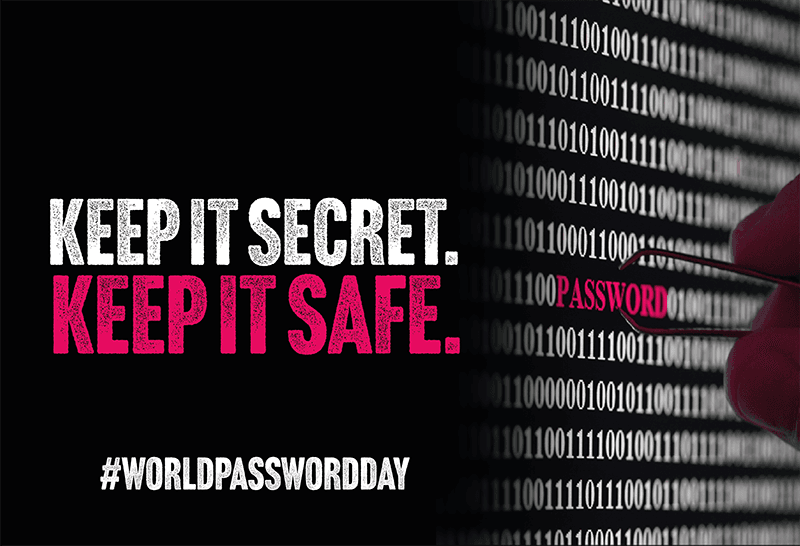- Blog
Men behaving badly
We did some research among 2000+ adults across the UK and found that whilst most of us know to think twice when it comes to sharing information online, men are sometimes over-confident, under-cautious, and demonstrate riskier online behaviour than women when it comes to protecting their and their family's data.By Rightly
6 min read

Men's behaviour online is putting them at risk of phishing and online fraud. Our new survey shows it's time to stop behaving badly when surfing the net and clean up your online act.
Here we publish our findings from the survey in the hope that men may think twice about their online behaviour to avoid their personal information ending up in the wrong hands and ultimately leading to financial loss.
Men are more likely to fall for scams
Our research shows that men are far too self-assured that they won't be scammed compared with women and yet our findings show that despite this confidence they are more likely to fall victim to one.
Our research revealed that despite most men (73%) deeming themselves confident they will never fall for an online scam, over a quarter (26%) have fallen victim to one. This is high compared with women, of whom 61% believe they'll never be victim to a scam, with only 19% having fallen for one.
Our survey also found that men even have a misguided sense that they are fully protected when surfing the net. Yet we found that a staggering 76% of men report feeling protected from online scamming, compared with 65% of women.
The reality is that scammers target everyone and there is a summer pandemic of scams happening right now!
More than two-thirds of adults (36 million) in 2021 were targeted by scammers, data from Citizens Advice Consumer Service has found.
Their research also showed that over 55s are most likely to be targeted, and yet those 34 and under are almost five times more likely to fall victim to a scam than their older counterparts.
In addition, younger people were most likely to be targeted by text or messaging services (61%), while those over 55 were most likely to be targeted over the phone (73%). Of all those targeted by a scammer: 54% were about fake deliveries or parcels; 41% were by someone pretending to be from the government; 12% were by someone offering a fake investment or get-rich-quick scheme – the Citizens Advice report uncovered.
Limit your digital footprint and think before you share!
One reason why men are more likely to fall victim is simply because, on average, men spend an hour more online each day than women (6 hours vs. 5). The more time you spend online the greater your digital footprint will be, which means the little bits of data you leave in every interaction online.
Another reason is that men are happier to share information on social media. Our survey found that: Men are less cautious when it comes to sharing information on social media, with 62% of men claiming to be careful compared with 71% of women.
Our advice is, whilst it may seem like your information is being shared with only your friends and family, it can also be shared with hackers and scammers who troll social media sites.
Everyone, whether you're a man or a woman, needs to be careful with how much personal information you reveal online. Sharing your address, phone number, birthday and other personal information can mean you’re at greater risk of identity theft, stalking and harassment. This includes information you post on social media.
The more information you post, the easier it may be for a hacker or someone else to use that information to steal your identity, access your data, or commit other crimes such as stalking. Being careless with your privacy can open you and your family up to everything, from cyberbullying and theft to extortion and kidnapping. Criminals can use social media geo-tagging, landmarks and research into your typical behaviour or schedule. So, think before you share.
Scams come in many guises
The types of scams men fell for are different to their female counterparts, our survey shows.
Romance Fraud, the act of approaching unsuspecting people looking for love on dating websites or apps to trick them out of either money or enough personal information to steal their identity, has risen significantly. Interestingly, men are more than twice as likely as their female counterparts to fall victim to a romance scam (our survey showed 14% and 6% respectively).
Facebook and Instagram were popular launchpads for the fraud, with many being scammed after being approached through the social media platforms.
Around £68.2m was lost to dating fraud schemes last year from 6,748 individual reports, data from the National Fraud Intelligence Bureau (NFIB) found.
That's not where the differences stop - the types of scams men fell for most were: fake shopping sites (19%), fake news scams (14%), make money fast scams (14%) and travel scams (13%) all being cited among the most frequent.
Women, on the other hand, are more likely to fall for fake shopping sites firstly (19%), then bank loans or credit card scams (11%), Facebook impersonation scams (8%) and overpayment online scams (8%).
Think about the impact of being scammed
Fraud can have a devastating impact on victims and increase the disadvantage, vulnerability, and inequality they suffer.
Financial loss is critical with our survey showing that 36% of men who had fallen victim to a scam said they had lost money, with (38%) saying it was a complete hassle to rectify. So, it is not an insignificant number of men who are losing their hard-earned cash because they are not taking preventative steps to avoid digital harm.
One of the main culprits is ‘authorised push payment’ (APP) scams, where fraudsters contact bank customers directly, representing themselves as the bank's fraud investigators, the police, HMRC or similar and persuade customers to transfer money (typically using real-time payment systems, such as Faster Payments) from their accounts to accounts with other banks. The money is then almost immediately removed from the recipient account, in many cases overseas, and is not recoverable.
Despite measures being taken to address the increasing levels of bank and APP fraud, the scale of the problem has continued to increase to such an extent that UK Finance, the banking trade body, has described it as amounting to a national security crisis. It is estimated that bank fraud now costs the UK economy approximately £1bn a year, and APP fraud accounts for the greater part of it. Too often, the losses caused by APP fraud are left to lie, fully or partially, where they fall: with customers. Too often banks decline to reimburse customers on the basis that they have failed to heed warnings about how to protect themselves from scams
Fraud can also cause lasting mental and physical trauma for victims. Our survey showed that 24% of the men surveyed felt a knock in confidence online, with 24% saying it and harmed their mental health.
On a positive note, our survey concluded that when it comes to general online hygiene (such as regularly changing passwords, having password managers etc.), the difference between men and women was negligible.
Whilst many of us are aware of some of the steps we can take to protect ourselves online, scammers continue to evolve, and their methods become ever more sophisticated. We all know by now that our data has real value, but it's time to take control of how it’s being used to stop the wrong information from falling into the wrong hands. Understanding how our data is being used and shared – and how to prevent this – is the biggest thing we can all do to stop these bad actors in their tracks.
What can you do to help?
As part of your regular online hygiene always use Rightly Protect to clean up your data. Rightly Protect enables you to figure out who has your data and get it deleted, in one click and for free. If you get your data deleted, it can’t be stolen by hackers nor lost by companies.
Men – here are three tips on protecting personal data
- If you’re connecting to a public Wi-Fi network, consider using a VPN (virtual private network) app which will encrypt everything you send and receive over the network
- Change passwords regularly and ensure you use separate passwords for each account. Avoid passwords which contain personal details such as names of streets or pets
- Always opt-out of sharing your data with third parties because if you tick the box, you relinquish control of who has access to your data and how they’re using it.
Related Articles
- Privacy
6 min read

Men's health apps... are they good for you?
It’s International Men’s Health Week, 13-19 June. There’s growing interest in apps that help men monitor their health and fitness and these apps gather enormous amounts of personal data. But what happens if that data is lost, or accessed by third parties or shared without your knowledge or consent? How safe are men's health apps and are they putting your privacy and online safety at risk?.
- Blog
5 min read

Keep it secret. Keep it safe.
Many people, as many as 82%, reuse passwords on multiple sites. This creates a lot of vulnerabilities because if someone gets hold of one password, they could get access to all sorts of things from social media platforms to bank accounts. Take time to work out who has your password, minimise the risk and keep yourself protected.